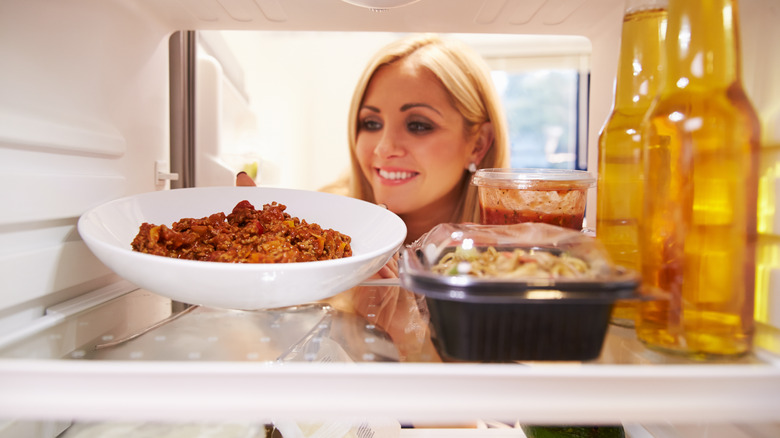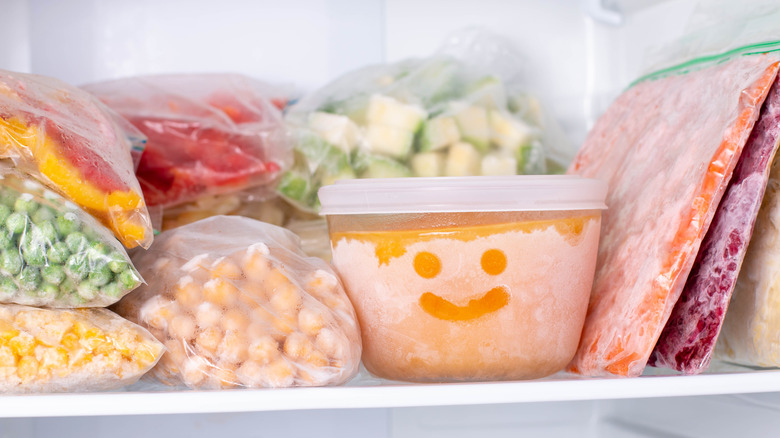Why You Should Stop Putting Warm Foods Directly Into The Freezer
The ability to stop time would be a pretty convenient superpower. In fact, there's a whole beauty industry dedicated to attempting just that. But when it comes to food, we've had that magic touch for thousands of years. The ancient Chinese figured out a way to use ice cellars to preserve food during winter, and the rest is, well, also history (via Fresh from the Freezer).
Foods kept at 0 degrees Fahrenheit consistently are always safe — bacteria, molds, and yeasts are stopped in their tracks and put to sleep, per the FDA. The only thing that suffers with lengthy periods of freezing is the quality of the food, not the safety. While all foods are technically freezable, some are built better for the icebox than others. Typically, those with a lower water content will defrost with a better texture. There is, however, a general rule of thumb for all freezing that tackles both mouthfeel and microbes. One mistake people make with hot foods they want to freeze is skipping the proper protocol, which calls for popping them in the fridge to cool first, and then transferring to the freezer. Why?
A temperature two-step
Macheesmo declares the most important step to proper food freezing is to cool it down first. Putting warm or hot food directly into your freezer runs the risk of lowering the freezer's overall temperature, which may begin the defrosting process for other frozen items. While the need to cool small portions of hot food before popping them in the refrigerator may be a myth, there's more safety at stake with the science occurring in your freezer. It's an issue for two reasons. First, the previously frozen foods can enter the temperature "danger zone" where bacteria wake up and begin to multiply rapidly (40 to 140 degrees Fahrenheit, per the FDA). Macheesmo notes that it will also take the warm or hot food you put in the freezer much longer to freeze, once again opening the door to the danger zone.
One thing to remember — there are two foods that should never be frozen, regardless of temperature: canned foods still in the can, and eggs still in their shells (per FDA). If you have some leftover Chef Boyardee that you want to freeze, though, that's fine — just pop it in the fridge until it's cooled off, then transfer it to the freezer.

